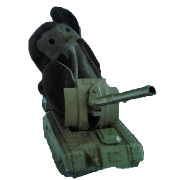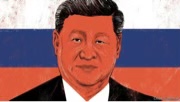|
my ignorant knee-jerk take is that the chicago democratic machine worked to keep many jobs whites-only during the first great migration edit this is a pretty crazy tidbit https://twitter.com/tenner_david/status/1399502371584106501
|
|
|
|

|
| # ? May 24, 2024 10:55 |
|
gradenko_2000 posted:https://twitter.com/mikeduncan/status/1501261156106657793 Already gone, what did they say?
|
|
|
|
I'm rereading The War State after finishing his new book and I find the matter-of-fact way Michael Swanson lays things out so amusing sometimes:quote:Many of the men Roosevelt appointed to head the executive-branch bureaucracies shared his internationalist outlook and were themselves important members of the “eastern establishment.” The best example is John McCloy, who served as assistant secretary of war from 1941 to 1945. Once the war ended, he was the US high commissioner to Germany and held this position until 1952. He then served as chairman of the Chase Manhattan Bank from 1953 to 1960, and as chairman of the Ford Foundation from 1958 to 1965. He was also a trustee of the Rockefeller Foundation from 1946 to 1949, and then again from 1953 to 1958, before he took up the position at Ford. From 1954 to 1970, he was chairman of the Council on Foreign Relations, to be succeeded by David Rockefeller, who had worked closely with him at Chase Bank. McCloy, in fact, had a long association with the Rockefeller family, going back to his early Harvard days, when he taught the young Rockefeller brothers how to sail. He was also a member of the Draper Committee, formed in 1958 by Eisenhower. He dedicated his life to liberal internationalism and to profits.
|
|
|
|
was that supposed to make roosevelt look good and stalin look bad because thats not really how im interpreting it
|
|
|
|
Libs accidentally making Stalin look amazing again.
|
|
|
|
It's not anti-Stalin. edit: He's not pro-Stalin either. Swanson likes to just lay out facts as he sees them in a real flat manner that, again, I think is very funny. It's a book about the choking growth of the military industrial complex, it's not about how awesome Roosevelt was. Teriyaki Hairpiece has issued a correction as of 20:33 on Mar 12, 2022 |
|
|
|
goofus and gallant do international relations
|
|
|
|
Communist Zombie posted:Already gone, what did they say? Azov battalion isn't a big deal because every country has neo-nazis in it
|
|
|
|
 this must be why were never getting a reality tv show centered around fast doctors 
|
|
|
|
The 1924 democratic primary was jokingly called the "Klan bake" because it was a battle between the pro-KKK candidate and the anti-KKK candidate. While the anti-KKK candidate won, it wasn't by a large amount, and I'm sure that a lot of African American voters still remembered that, as well as all the other terrible things the democratic party had done to them over the years.
|
|
|
|
More Michael Swansonquote:The Soviet Union, however, was not as powerful as the American politicians, reporters, and national security bureaucrats linked to the military-industrial complex claimed it was. NSC-68, written and approved as the guiding national security document for the United States in 1950, argued that if the country did not vastly increase its defense spending, then in just a few years Russia would be on track to produce enough conventional and nuclear weapons that they would be able to completely run over Western Europe and defeat the United States in an atomic attack. During the Eisenhower administration, politicians, such Senator Henry Jackson of Washington, linked to Boeing and other defense contractors, claimed that the Soviet Union had produced so many bombers that a “bomber gap” existed, while the Gaither Report claimed that by 1960 Khrushchev would have the ability to launch a first-strike missile launch that would cripple the ability of the United States to retaliate. Such claims helped complete the transformation of the United States into a permanent war state by the end of the 1950s, but none of them were even close to reality. quote:Eisenhower agreed and invited Khrushchev on a three-week tour of the United States ending with a meeting with him at Camp David. The trip had its odd moments. Khrushchev would be the first Soviet leader to visit the United States and neither did he nor anyone else in the Soviet Union know where or what Camp David was. He worried that it might be a prison camp. “One reason I was suspicious was that I remembered in the early years after the Revolution, when contacts were first being established with the bourgeois world, a Soviet delegation was invited to a meeting held someplace called the Prince’s islands. It came out in the newspapers that it was to these islands that stray dogs were sent to die,” he said, “I was afraid maybe this Camp David was the same sort of place, where people who were mistrusted could be kept in quarantine.” Once he found out that it was simply a presidential retreat in the mountains of Maryland, he got excited. Teriyaki Hairpiece has issued a correction as of 08:01 on Mar 13, 2022 |
|
|
|
https://mobile.twitter.com/kennardmatt/status/1502749164354080776
|
|
|
|
Some Guy TT posted:
There is a really good book on this period of surgery called The Butchering Art about Joseph Lister trying to introduce anti septics to surgons. For your tv show fix 
|
|
|
|
Teriyaki Hairpiece posted:More Michael Swanson Since the fall of the USSR have we been able to get scholarship to show if the Soviets were as equally deluded about our capabilities, especially that early on? I know of several Cold War head games we tried and of course we think it was a giant success, but were they really?
|
|
|
|
Relevant to thread title https://twitter.com/mikeduncan/status/1504068365610106889?t=RH_Ge5B2KFr7jaq7RmPcuw&s=19
|
|
|
|
Does anyone have any book recommendations for American/Chinese Cold War relations? I'm particularly interested in Nixon's 1972 trip to China and the China Lobby.
|
|
|
|
https://mobile.twitter.com/TwainsMustache/status/1504887256468885505
|
|
|
|

|
|
|
|
lol nazi comic
|
|
|
|
https://mobile.twitter.com/SpecialPuppy1/status/1506439560087101443 must have been all those advertisements featuring interracial couples
|
|
|
|
it lines up perfectly with Michael Jordan’s second threepeat
|
|
|
|
Oj?
|
|
|
|
One of the few funny parts from when the Portuguese first came to India:quote:Entering the city, they were guided to “a large church…as large as a monastery, all built of hewn stone and covered with tiles.” There is nothing in this account to suggest that the Hindu temple they were led into was not a church of some deviant Christian sect. Outside there were two pillars, probably lingams of the god Shiva. Inside, they saw a sanctuary chapel in the center with a bronze door; “within this sanctuary stood a small image which they said represented Our Lady.” It is impossible to know what was being lost in translation: probably from the Arabic of the Portuguese to an Arabic-speaking native, who then translated into Malayalam, the language of the Malabar Coast. Gama knelt down and prayed; the priests sprinkled holy water and “gave us some white earth, which the Christians of this country are in the habit of putting on”; Gama set his to one side. The diarist noticed, as they left, the saints on the walls, wearing crowns and “painted variously, with teeth protruding an inch from the mouth, and four or five arms.”
|
|
|
|
Teriyaki Hairpiece posted:One of the few funny parts from when the Portuguese first came to India: This is ancient aliens level of denial.
|
|
|
|
okay, so I've read about "Operation Wetback", which was an anti-immigrant op ran by the INS back in 1954 under the Eisenhower administration, whose aim was to round up Mexican immigrants (even ones who had migrated to the US legally) and deport them the fact that they already called them "wetbacks" as of 1954 suggests that "illegal immigration" was already A Thing for long enough by that time that people had A. created a slur for Mexicans over it, and B. that the slur had penetrated deep enough into the public consciousness that the Attorney General of the United States was comfortable with making it the name of the op my question is: if the timing and the naming of the op suggests that familiarity with illegal immigration was well-entrenched into American political speak by 1954, when did it start? were people crossing the border from Mexico into the US in the 1930s? the 1910s? 1880s? even before then? and like, I suppose it might be possible to say that technically it had been happening since the establishment of the border between Mexico and the US, so when I say when it "started", I'm also referring to when it became a political issue
|
|
|
|
HootTheOwl posted:This is ancient aliens level of denial. The portuguese famously came to india to fight the moors and trade for spices according to their translations. They landed in the one part of India that had existing christian and jewish communities.
|
|
|
|
Tankbuster posted:The portuguese famously came to india to fight the moors and trade for spices according to their translations. They landed in the one part of India that had existing christian and jewish communities. Teriyaki Hairpiece has issued a correction as of 07:17 on Apr 1, 2022 |
|
|
|
christianity would be way cooler if saints had six arms and fangs instead we get the reality from the big 3 of a bunch of dudes in robes telling god theyre real sorry they did or did not chop off their foreskin
|
|
|
|
There definitely were St Thomas Christians in the area the Portuguese went to but that wasn't what my quote was about.
|
|
|
|
gradenko_2000 posted:okay, so I've read about "Operation Wetback", which was an anti-immigrant op ran by the INS back in 1954 under the Eisenhower administration, whose aim was to round up Mexican immigrants (even ones who had migrated to the US legally) and deport them Some Mexican-Americans had the border cross them
|
|
|
|
Can someone recommend me a decent one-volume history of the Russian Revolution? I'm tempted by Laura Engelstein's Russia in Flames. The synopses I've read make it seem reasonably balanced (and not an anti-communist polemic), it's from a university press and, most importantly, it's cheap! But I'm willing to take suggestions.
|
|
|
|
Endman posted:Can someone recommend me a decent one-volume history of the Russian Revolution? I was about a quarter into Engelstein's book until I got side-tracked, but what I got into so far was pretty good, and I think it should work. My other recommendation would be "A People's History of the Russian Revolution" by Neil Faulkner, which isn't as detailed, but is a much brisker read for it. I know other people are going to recommend China Mieville's "October", but I couldn't get into it at all.
|
|
|
|
Teriyaki Hairpiece posted:No. Like many other 15th-century Euros, the Portuguese were obsessed with the idea that there were secret Christians somewhere out in the world, particularly that somewhere existed the kingdom of Prester John. When they first came to east Africa and India they had such an obsession with finding these mostly nonexistent Christian communities that they thought Hindus were Christians. This lead to all the hilarious misunderstandings like the part I quoted. I know that part, but at the same time the malabar coast had St Thomas Christians and Cochin Jews. The Portuguese did find their near mythical foreign christians in and around their colonies on the west coast of India. Still, confusing Krishna = Kristos is a really amazing reach and worth laughing about.
|
|
|
|
Endman posted:Can someone recommend me a decent one-volume history of the Russian Revolution? Russia in Flames is good but barely counts as a one-volume history because it is 856 pages long. If you want something shorter, I recommend S. A. Smith's Russia in Revolution or Mark Steinberg's The Russian Revolution, 1905-1921, both of which admirably cover a larger revolutionary era, are written by experts comparable to Engelstein in their mastery of the era, and neither of which is anti-communist polemic. Mieville's October is much more tightly focused on events in Petrograd in 1917 (also I haven't read it so don't feel comfortable recommending it), and at all costs avoid Sean McMeekin's book because it is garbage so dedicated to anti-communism that it distorts historical facts and ends by warning that Bernie Sanders is Lenin. vyelkin has issued a correction as of 14:30 on Apr 1, 2022 |
|
|
|
vyelkin posted:Bernie Sanders is Lenin. If only.
|
|
|
|
vyelkin posted:Russia in Flames is good but barely counts as a one-volume history because it is 856 pages long. If you want something shorter, I recommend S. A. Smith's Russia in Revolution or Mark Steinberg's The Russian Revolution, 1905-1921, both of which admirably cover a larger revolutionary era, are written by experts comparable to Engelstein in their mastery of the era, and neither of which is anti-communist polemic. Mieville's October is much more tightly focused on events in Petrograd in 1917 (also I haven't read it so don't feel comfortable recommending it), and at all costs avoid Sean McMeekin's book because it is garbage so dedicated to anti-communism that it distorts historical facts and ends by warning that Bernie Sanders is Lenin. Thanks for the recommendations, but also lmao at that last part. Will definitely avoid
|
|
|
|
I'm reading the very excellent Conquerors: How Portugal Forged the First Global Empire by Roger Crowley. Here's my summation of how Portugal "disrupted" the Indian Ocean trade in the 1500's: Europeans liked spices. Spices came from India. They were imported to Europe through several steps. Along the way, everybody made money. The native rulers in India got paid. The Arab traders of the Indian Ocean got paid. The ruler of Egypt got paid. The Venetians in the Mediterranean got paid. Everyone got paid, and the Europeans paid for it, because they liked spices. Then the Portuguese came along. They cut out everyone. Instead of the Indians getting paid, and the Arab traders getting paid, and the Egyptians getting paid, and the Venetians getting paid, only the Portuguese got paid. And the Europeans paid the Portuguese, because they liked spices. It's like when a new manager comes into a business and fires four people and makes one person do all the jobs, except with more boats, and cannons, and murder, and scurvy.
|
|
|
|
I'd like to make sure I'm getting some history right: The Curzon Line was a proposed border running from east of Bialystok, west of Brzesc, and west of Lvov (Lwow/Lviv), that would define the border between Poland and the Soviet Union. This was negotiated by the Entente powers. at the conclusion of the First World War, and with the formation of Poland as an independent state, the Curzon line was basically followed as the border as a result of the Polish-Soviet War (1919-1921), the Poles actually managed to invade east, past the Curzon line, to take territory that was otherwise supposedly part of the Soviet Union at the time with the signing of the Treaty of Riga that ended the Polish-Soviet War, the Soviets accepted the annexation of territory east of the Curzon line, such as Wilno, Baranovici, and Stanislawow World War 2: Nazi Germany invades Poland in September 1939, and the Soviets also invade about two weeks later The territory annexed by the Soviet Union after partitioning Poland between themselves and Germany is more than just what they'd get from reverting the borders back to the Curzon line, particularly with respect to the Bialystok region being on the USSR side of the border, where the Curzon line would have excluded it (this part I am less sure of) at the end of World War 2, Poland's borders revert [mostly] to the Curzon line, plus they are awarded territory that formerly belonged to Germany, namely the Gdansk, Szczecin and Wroclaw regions is that roughly accurate? to be clear, what I'm trying to discern here (and I acknowledge that this is an oversimplification) is the impression that Poland "shrank" after the Second World War. Rather, Poland's eastern borders prior to 1921 were already just about where they are today, but they expanded as a result of the Polish-Soviet War (which the Soviets started, but arguably lost and had to eat the territorial losses), except Hearts of Iron (yes, I know) only ever starts in 1936 at the earliest so it always looks like Poland's borders by default extend that far east when that was really an outlier.
|
|
|
|
The Poles weren't consulted about the Curzon Line.
|
|
|
|

|
| # ? May 24, 2024 10:55 |
|
Your definition of whether Poland grew or shrank, and whether Poland lost or won, or should be happy with what they got, or should be considered sore winners after WW2, everything in your post seems to hinge on whether or not the Curzon Line was a right and proper border. It wasn't.
|
|
|























